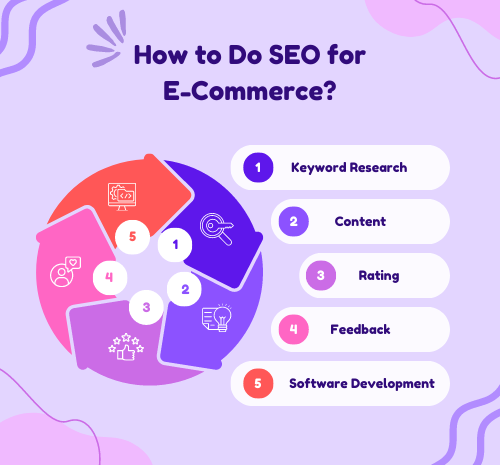Introduction:
In the ever-expanding realm of online commerce, the importance of Search Engine Optimization (SEO) cannot be overstated. To thrive in the competitive world of ecommerce, mastering SEO is essential. This comprehensive guide will walk you through the strategies and techniques necessary to optimize your ecommerce website for search engines, driving organic traffic, and boosting sales.
Keyword Research: Laying the Foundation:
Begin your SEO journey by conducting thorough keyword research. Identify relevant keywords and phrases that potential customers are likely to use when searching for products you offer. Utilize tools like Google Keyword Planner and competitor analysis to discover high-impact keywords that align with your product offerings.
Optimize Product Pages: Crafting Compelling Descriptions:
Each product page is an opportunity to shine in search results. Craft unique and compelling product descriptions that include your target keywords naturally. Incorporate relevant details, specifications, and benefits to entice both search engines and potential buyers.
Technical SEO: The Backbone of Success:
Ensure your ecommerce site is technically sound. Optimize loading speed, mobile responsiveness, and site structure. Implement schema markup to enhance the visibility of product information in search results. Fix broken links and ensure a seamless user experience.
High-Quality Imagery and Videos: Captivating Visuals Matter:
Visual content plays a crucial role in ecommerce SEO. Use high-quality images and videos that showcase your products from different angles. Optimize image alt tags with descriptive keywords for improved accessibility and search engine recognition.
User-Friendly Navigation: Enhancing On-Site Experience:
A user-friendly navigation system is not only essential for customers but also for search engines. Implement clear categories, subcategories, and filters to help visitors easily find products. A well-organized site structure can lead to higher search rankings.
Engage with Compelling Content: A Blogging Strategy:
Create a blog that offers valuable content related to your products or industry. Develop engaging articles, how-to guides, and informative posts that address customer queries. This not only establishes your expertise but also provides opportunities to naturally incorporate keywords.
Build High-Quality Backlinks: Authority Matters:
Earn high-quality backlinks from reputable websites within your industry. Partner with influencers, contribute guest posts, or engage in content sharing to enhance your site’s authority and credibility in the eyes of search engines.
Optimize for Local Search: Targeting Local Customers:
For businesses with physical stores or a local customer base, local SEO is crucial. Optimize your Google My Business listing, include location-based keywords, and encourage customer reviews. This helps your business appear in local search results.
Leverage Social Media: Beyond Search Rankings:
While social media directly impacts SEO, it indirectly influences it by driving traffic and engagement. Share your products, engage with customers, and encourage social sharing to amplify your online presence.
Regular Monitoring and Adaptation: Stay Ahead of the Curve:
SEO is an ongoing process. Regularly monitor your website’s performance using tools like Google Analytics and Search Console. Analyze keyword rankings, traffic patterns, and user behavior to adapt your strategy and remain competitive.
Conclusion:
In the dynamic landscape of ecommerce, a well-executed SEO strategy can be the difference between thriving and merely surviving. By optimizing product pages, embracing technical excellence, producing valuable content, and staying abreast of trends, you can position your ecommerce business for sustained success in the online marketplace. Remember, SEO is not a one-time endeavor; it’s a continuous journey that propels your brand towards visibility, authority, and increased revenue.


